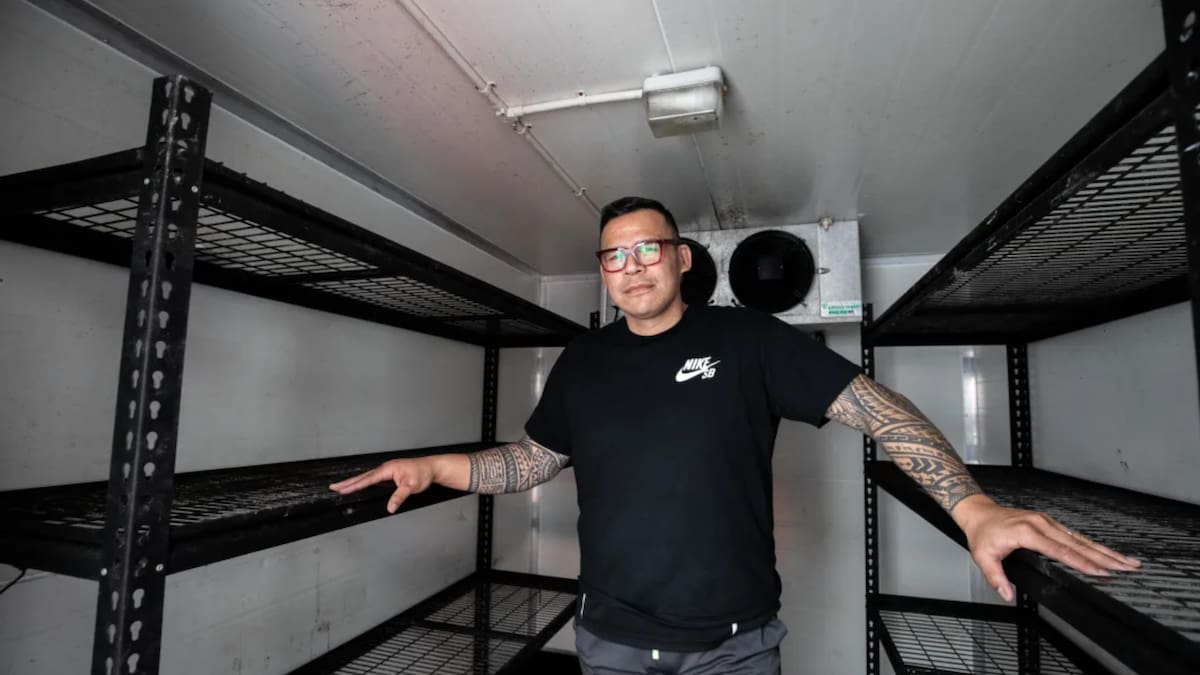By Bella Craig of RNZ
It is becoming “damn near impossible” for many families to survive as food insecurity bites, a community leader says.
Dave Letele has recently had to cut the number of families receiving food parcels from his BBM foodbank because he has been unable to secure government funding.
Meanwhile, he said, he was facing an avalanche of demand in communities where food insecurity was a daily issue.
“Any time you have children without food, going hungry or without uniforms or shoes, and parents wondering how the heck they’re going to continue on, that’s tough.”
At his BBM community kitchen and foodshare service in south Auckland, he said the need for food was progressively getting worse.
“There’s hungry children here, it really is a disgrace.”
The food bank supports 200 families, which adds up to more than 1000 people across BBM’s health, fitness programmes and community kitchen.
Last year, it cost about $1 million to run the service.
The government recently told BBM it would have to wait for the new financial year if it wanted funding.

Letele said many other organisations were in the same boat.
“It’s not just tough for us, it’s tough for schools, community groups, marae, everyone that’s on the ground helping others, especially with kai.”
Z Energy has recently stepped in to help BBM, covering the food bank’s running costs.
Letele said that meant it could help more people.
“Any social issue, you’ll find a community group on the ground having an impact with next to no resources, just imagine if they were resourced properly, the impact that could be had.”
He said BBM gave people a hand up to try to break cycles of struggle so they did not have to rely on the government for help.
BBM also had a recruitment programme that supported people into employment.
“With all this lack of support, it’s damn near impossible for families to survive, unless groups like us are supported,” he said.
“Groups like us ensure that they understand that it is possible, but we’re not just saying it, we’re going to support you to help you to get there.”
Zanele Ngantwaeni reached out to David Letele after having her daughter because she was struggling and had nowhere to live.
“He helped me to organise the bond and provided me with nappies, milk and food for the baby,” she said.
BBM helped her recover mentally from having a child too – by joining the group’s gym.
“I would go there and the ladies were very nice, they would hold the baby and I had that time because I’m a single parent.”
She said she was later told she no longer had postnatal depression.
“My mood was improving and I was no longer feeling sad or crying.”
Rai Brothers is a teacher aide at a primary school in Wiri.
She has lived in the community for 40 years and is a mother of six.
Outside her house is a pātaka kai, or community pantry, which she puts food into for families in need – gathered from places like the BBM food bank.
“My heart goes out to those children because I don’t know whether they’ve got any food at home. Maybe that’s their only meal for the day.”
At her local school, she runs the breakfast club, providing children with a decent meal before they start their day.
The children got cereals, Weet-Bix and toast, but she did not like to limit what they ate, she said.
“If they’re hungry, I’ll give it to them.”
She said the government needed to support food banks because the cost of not doing so was serious.
“A lot of bad things [are] going to happen, a lot of robbing shops, or even just at our dairy. I’ve seen the kids stealing from the shopkeeper.
“I live straight across from the shop. I will tell them ‘if you’re hungry, come and see me’.”
Rai said food insecurity was a massive issue in the community and one that deserved the government’s attention.
Serena Curtis, a manager at the Ministry of Social Development (MSD) said “Through our Food Secure Communities programme, we have supported foodbanks, food rescue and other community food services that were experiencing increased demand due to the impacts of Covid-19.”
This was time-limited funding, responding to increased demand for food support caused by the pandemic.
MSD said if people are in hardship or know of others who are – they want them to reach out.
“We may be able to assist with a food grant for those who are on a low income or a benefit, or other support.”
Since 2020m MSD has provided funding of more than $1m to BBM.
MSD also funds the New Zealand Food Network (NZFN). BBM is a recognised NZFN food hub and receives food from NZFN to support its work.




 Slain Mongrel Mob boss Daniel Eliu had $230,000 in car when stopped by police investigating meth ring
Slain Mongrel Mob boss Daniel Eliu had $230,000 in car when stopped by police investigating meth ring